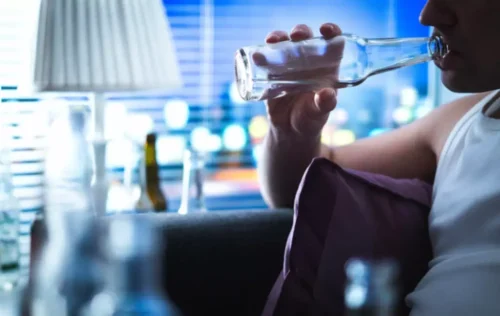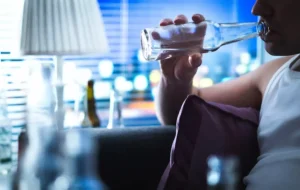
Facial flushing while drinking is usually due to an ALDH2 deficiency, which may make alcohol consumption more harmful to your health. People of Asian and Jewish descent are more likely why does alcohol make you hot to have this problem. Most importantly, keep in mind that drinking excessively is what will get you in the most hot water. Binge drinking is a form of drinking that has many health risks — and there’s no exception for it even during the cold. However, hot flashes and sweating can also affect other people, since alcohol can affect the endocrine system. This system makes and secretes hormones that can contribute to these symptoms.

Is wine high in vitamin D?

When alcohol is added to the mix, the liver’s workload increases, demanding even more circulatory assistance and causing an overall drop in body temperature. The relationship that binge drinkers have with alcohol is unhealthy. Alcohol affects the nervous system and can cause your blood vessels to tighten, which results in increased blood pressure. Night sweats may also result from alcohol withdrawal or alcohol intolerance. For people who already experience night sweats, including those going through menopause, consuming alcohol can worsen the sweating.
- This shift in blood supply throughout your body causes you to actually lose heat, but you don’t notice because during this process you feel warmer.
- If your symptoms are related to an alcohol hangover, you will likely notice that they probably set in a few hours after you stop drinking.
- However, hot flashes and drinking alcohol are linked because of hangovers.
- In June, the World Health Organization said that no level of alcohol consumption is safe for our health.
Health Conditions

When you drink alcohol, your blood vessels dilate to get rid of the excess heat. When the vessels expand, you might even feel warmer because of the increased blood flow in the vessels under your skin. It’s also worth noting that, apart from alcohol withdrawal, hot flashes may occur as a result of alcohol intolerance — which is when our body has an adverse reaction to alcohol. Like hangover symptoms, hot flashes and sweating from AWS can also occur because alcohol withdrawal triggers your body’s fight-or-flight response. Although alcohol has a depressing impact on the central nervous system, during withdrawal the brain may struggle to adjust to the declining sedative impact of alcohol. In response, certain chemicals of excitability that are stamped down by alcohol, like glutamate, suddenly reactivate and lead to symptoms such as increased blood pressure and heat.
How much alcohol is safe to drink regularly?

No matter how long you’ve struggled with drug or alcohol abuse, we’re here to help. You may be more tempted to shed layers or feel more at ease due to alcohol’s effects. But feeling warm and taking off your jacket, sweater or gloves outside increases your hypothermia risk. The dangers of drinking alcohol in the cold may not be obvious to you. Drinking affects your ability to key into your body’s temperature signals and heightens your risk for injuries. If you experience these symptoms along with regular night sweats, you may be going through alcohol withdrawal.
Your body temperature control (thermoregulation), is affected when you consume alcohol. The alcohol causes unusual thermoregulation activity as it influences the mechanisms your body uses to either warm you up or cool you down. Your liver is actually the main heat-producing organ in your body anyway.

If someone drinks to the point of alcohol poisoning, their body temperature could drop significantly, potentially leading to hypothermia. Individuals who have difficulty metabolizing alcohol sometimes experience alcohol flush. The condition is also known as the https://ecosoberhouse.com/ “Asian flush” because it’s more common in people of Asian descent, but anyone can experience a flushing reaction after drinking if they have a certain gene mutation. Night sweats and hot flashes can also occur after drinking, and it’s important to stay alert for signs of alcohol poisoning. This shift in blood supply throughout your body causes you to actually lose heat, but you don’t notice because during this process you feel warmer.
- Whatever the situation, it’s important to be respectful, particularly as we enter Christmas and New Year party season.
- Your symptoms may continue for up to 24 hours after your last drink.
- It can also decrease the production of the hormone vasopressin, which regulates our body’s fluid balance, leading to dehydration and increased thirst.
The cost of excessive drinking impacts everyone
Similar to hangover symptoms, hot flashes and sweating occur because alcohol withdrawal triggers our body’s fight-or-flight response. Typically, alcohol depresses our central nervous system, making our brain highly sensitive to glutamate — a neurotransmitter that excites our brain. However, without alcohol in our system, our brain becomes easily overexcited, leading to increased blood pressure and heat. A few drinks may cause your heart to accelerate, which further increases the chances of flushing and sweating.

